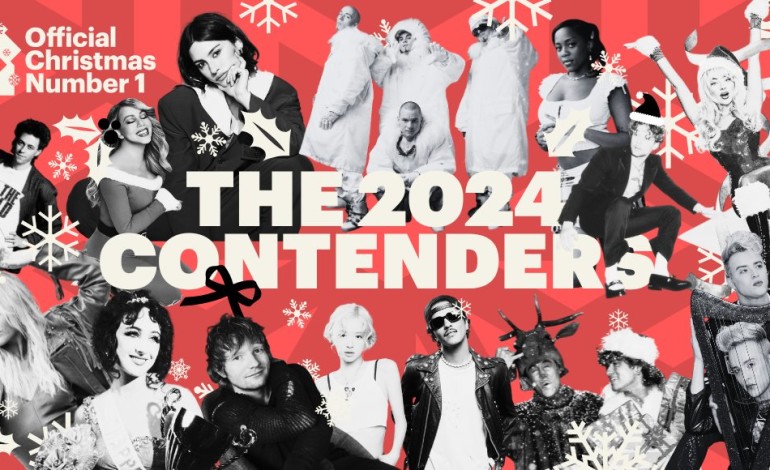
With the race for this year’s Christmas No. 1 intensifying, it raises questions about why older songs are still dominating the holiday charts and what makes these Christmas songs such classics?
Currently standing at No. 1 on the Official Singles Chart is ‘Last Christmas’ by WHAM!, first released in 1984. Remarkably, half of the singles in the Top 10 this week were released before 2000. This pattern isn’t just limited to the charts – on Spotify’s 100 most popular Christmas songs, two-thirds were released over 30 years ago. Despite new festive contenders arriving each year, listeners still gravitate towards the timeless hits. But why?
See how @WhamOfficial_ are shaping up in the race for #XmasNo1 ❄️ ❄️ ❄️ https://t.co/OdGAoclxlZ pic.twitter.com/Tzv5H0yDcc
— Official Charts (@officialcharts) December 16, 2024
Professor Joe Bennet, a forensic musicologist at Berklee College of Music, concludes that nostalgia is the key driver behind a Christmas classic. Christmas “is a time for returning to where we came from” he explains. This desire for familiarity and tradition is reflected in the music we play around the holiday season.
Therefore it is no surprise that his analysis of the UK’s most favourite Christmas songs found that they share recurring lyrical themes: family, homecoming, Santa, snow, and mistletoe. These universal ideas pair optimism for the future with fond memories of the past. Irving Berlin’s ‘White Christmas’ is a perfect example of this nostalgic magic:
“I’m dreaming of a white Christmas
Just like the ones I used to know
Where the treetops glisten and children listen
To hear sleigh bells in the snow.”
Written in 1940, Berlin famously told his musical secretary “it’s the best song anybody ever wrote”, and the record sales seem to back up his claim. With an estimated 50 million copies sold and over 20,000 covers available on Spotify, “White Christmas” remains the best-selling single of all time and sits in the Top 75 on the Singles Chart this week.
However, nostalgia isn’t limited to lyrics. Classic FM highlights that musical composition plays a major role. To achieve timeless success, Christmas songs often pair joyous melodies with hints of melancholy, typically achieved by using minor chords in a major key, and usually incorporate sleigh bells, as found in 49% of songs in Prof Bennet’s study. This technique can be found in festive tunes from Tchaikovsky’s Nutcracker Ballet to Mariah Carey’s ‘All I Want for Christmas Is You’, the 1994 anthem that still dominates charts worldwide and takes the No. 3 spot this week.
Genre plays another important role in a song’s nostalgic feel. Half of the most popular Christmas songs are rooted in mid-20th century genres. Even modern artists pay homage to these timeless sounds such as Ed Sheeran and Elton John’s 2023 single “Merry Christmas” which channels Phil Spector’s 1963 album “A Christmas Gift for You” through its lush, festive instrumentation and layered vocals – the single currently sits in the Chart’s Top 50.
With the use of contemporary production techniques, artists can recreate the warmth of mid-century genres. Michael Bublé, often crowned the king of modern Christmas songs, exemplifies this in his iconic 2011 album “Christmas” which has over 2 million streams. This week, 3 of the album’s tracks can be found on the Official Charts.
Occasionally, modern styles find success. Jackson 5’s pop disco rendition of “Santa Claus is Coming to Town” shines through as an enduring example. This holiday season, Tom Grennan’s “It Can’t Be Christmas” stands its ground in the Top 10 on the Charts illustrating that there can be room for modern sound in the fight for Christmas No. 1.
In conclusion, the enduring success of Christmas classics lies in their ability to evoke a sense of nostalgia while maintaining universal themes of joy, family, and tradition. Whether it’s through lyrics, timeless chord progressions, or production styles, these songs strike a unique balance between the past and present. Allowing tracks like ‘White Christmas’, ‘Last Christmas’, and ‘All I Want for Christmas Is You’ to resonate across generations.
As this year’s festive season unfolds, the question remains: will any modern release ever match the timelessness of those beloved classics? For now, we must await the Official Charts announcement for Christmas No. 1 this Friday, 20 December.
